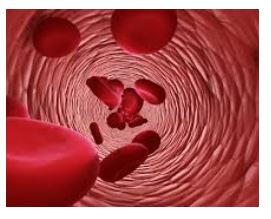Table of Contents
Researchers at the University of Colorado claim they may have discovered a plan to “disable” Meniere’s Disease and it all has to do with blood flow.

According to Carol Foster, MD, from the department of otolaryngology and Robert Breeze, MD, a neurosurgeon, there is a strong association between Meniere’s disease and conditions involving temporary low blood flow in the brain such as in migraine headaches.
The connection between blood flow and Meniere’s has long been believed to be at least part of the reason for Meniere’s symptoms and is something concentrated on by both Chiropractors and in part, nutritionists.
It forms a big part of the reasons for some of the supplements such as ginkgo, Lipoflavonoid and grapeseed extract in the supplement regimen used with such success for over a decade spoken about so much on the main website Meniere-Help.Com.
It is also the reason
All of these supplements have nutrients that help blood flow.
The Research
“If our hypothesis is confirmed, treatment of vascular risk factors may allow control of symptoms and result in a decreased need for surgeries that destroy the balance function in order to control the spell” said Foster. “If attacks are controlled, the previously inevitable progression to severe hearing loss may be preventable in some cases.”
The researchers propose that a fluid buildup in part of the inner ear, which is strongly associated with Meniere attacks, indicates the presence of a pressure-regulation problem that acts to cause mild, intermittent decreases of blood flow within the ear.
When this is combined with vascular diseases that also lower blood flow to the brain and ear, sudden loss of blood flow similar to transient ischemic attacks (or mini strokes) in the brain can be generated in the inner ear sensory tissues.
In young people who have hydrops without vascular disorders, no attacks occur because blood flow continues in spite of these fluctuations. However, in people with vascular diseases, these fluctuations are sufficient to rob the ear of blood flow and the nutrients the blood provides.
When the tissues that sense hearing and motion are starved of blood, they stop sending signals to the brain, which sets off the vertigo, tinnitus and hearing loss in the disorder.
Blood flow and the symptoms of Meniere’s disease
Restoration of blood flow does not resolve the problem. Scientists believe it triggers a damaging after-effect called the ischemia-reperfusion pathway in the excitable tissues of the ear that silences the ear for several hours, resulting in the prolonged severe vertigo and hearing loss that is characteristic of the disorder.
Although most of the tissues recover, each spell results in small areas of damage that over time results in permanent loss of both hearing and balance function in the ear.
Since the first linkage of endolymphatic hydrops and Meniere’s disease in 1938, a variety of mechanisms have been proposed to explain the attacks and the progressive deafness, but no answer has explained all aspects of the disorder, and no treatment based on these theories has proven capable of controlling the progression of the disease.
This new theory, if proven, would provide many new avenues of treatment for this previously poorly-controlled disorder. Interesting theory, lets hope we hear more about this.
In acupuncture, sometimes the rush of blood to the ear can cause initial dizziness followed by relief from most symptoms. Encouraging better blood flow is one of the aims of the therapist.
If you found this article useful Click here to support Meniere’s Help paypal.me/menieres
Read the full article here
Related articles: